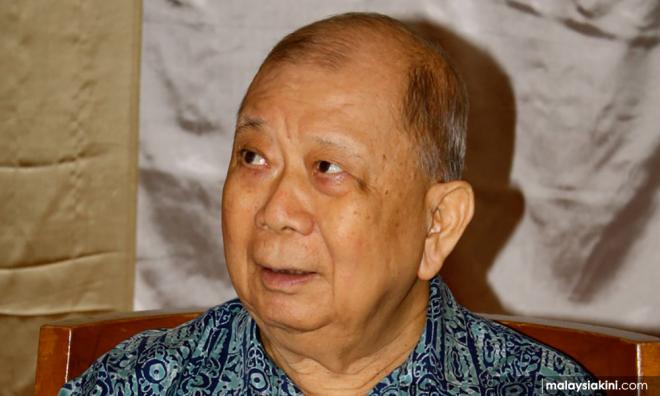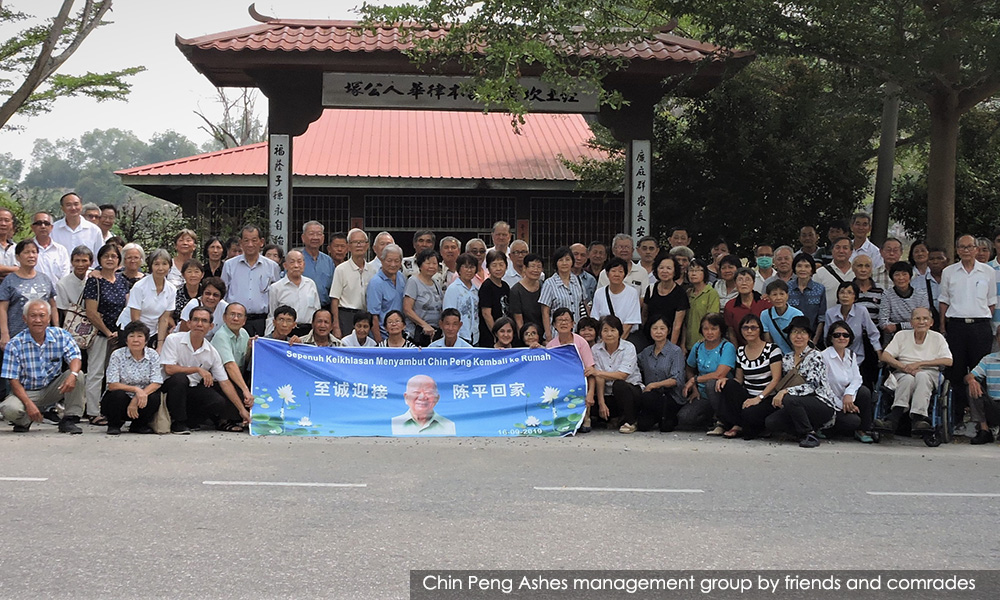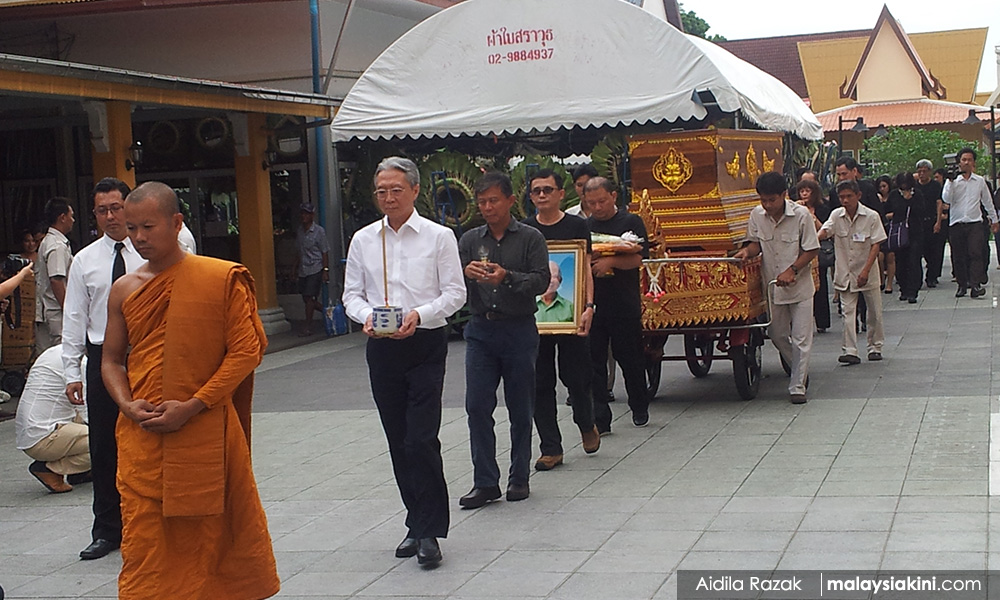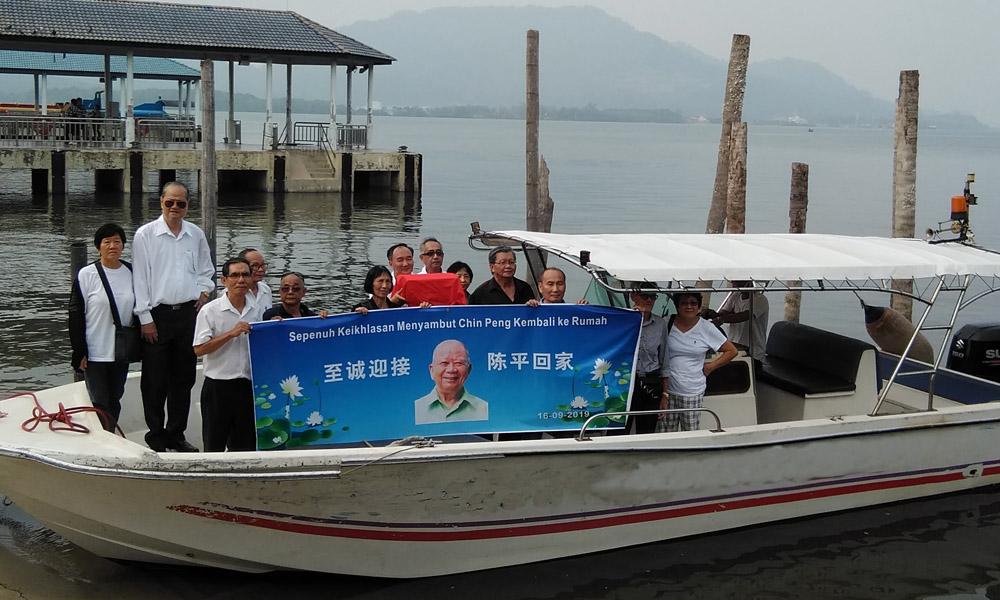
The hypocrisy over the return of the ashes of the former secretary-general of the Communist Party of Malaya (CPM), Chin Peng, is astounding, but ironically, he has the last laugh.
Against all odds, he had the final say on the day he died, and six years later, continues to run rings around our administration.
Malaysia has no time to divert resources to investigate the controversy caused by Chin Peng's cermains. The country has to recover from Umno-Baru's thefts and mismanagement of the economy.
Disgraced Najib Abdul Razak said that Pakatan Harapan was "desperate" to allow the return of Chin Peng's ashes, and he demanded to know how this would revive the deteriorating economy. Other Umno-Baru/PAS politicians have also jumped onto this bandwagon.
Some people want Chin Peng's friends to be investigated for bringing his ashes home, but the critics close one eye to our dependency on trade with the People's Republic of China, China’s role in bailing-out Najib's 1MDB thefts, and the millions of China nationals, whose tourist dollars we welcome. They ignore the role Peking played in controlling Chin Peng, funding his outlawed CPM and spreading communist propaganda with China-based transmitters.
There is no denying the atrocities committed by the CPM, nor the deaths of thousands of Malayans, including Dayak scouts, and British and Commonwealth citizens.

We may wonder what history books teach our children. Is there objectivity, a mention of what both sides did, and a chance to be critical about the possible consequences?
Do the books state that in World War II (WWII), Chin Peng worked with British commandos in Force 136, to gather intelligence behind enemy lines, and liberate Malaya from Japanese rule? He was against colonial rule, and the war made Japan his 'new' enemy. Chin Peng justified working with the British, because "his enemy's enemy" was his friend.
Few Malaysians are aware that when the Japanese surrendered, some parts of the country were ruled, for several days, by the CPM, until the return of the British administration from exile in Ceylon.
Do history books mention the Batang Kali massacre, caused by rogue elements in the British Army?
Do our pupils learn about the failure of the Baling Talks, in December 1955, because Chin Peng could not accept some of the terms in the amnesty offered by Tunku Abdul Rahman?
Will children be told, that Chin Peng lived in exile in Peking (now Beijing), from 1961, for 29 years? Will they see the hypocrisy of the leaders of the previous Umno-Baru/BN government, who were courting the friendship of China, while Chin Peng was being instructed by the Chinese Communist Party in Peking?

During 'The Emergency', the communists forced villagers to reserve dried fish, rice, and medicine for them, and burnt their homes, if they refused. To spread fear, the communists would eject bus passengers, then set the buses alight. They wanted to strangle the economy, but their efforts alienated the people.
To stop any collaboration, "New Villages", complete with water and electricity supplies, were set up by the British in the "Briggs Plan". It was also a propaganda war. CPM said the barbed wire was to imprison the villagers. The British said the barbed wire was to repel the communists and protect the people. The Internal Security Act (ISA) and the identity card (IC) probably had their roots then.
In WWII, the Japanese killed millions of people, including thousands who perished in Malaya, Singapore and Borneo. Torture and beheadings were frequent. With food shortages, tapioca became our staple diet. Girls were sent to Japanese army-run brothels, as comfort women, and men were shipped north, to work on the death railway. Few returned.
Today, all the Japanese war crimes have been forgotten, memorials are erected for "Japanese war heroes", and our homes are full of 'Made in Japan' and 'Made in China' products.
Ironically, Chin Peng's ashes are considered more dangerous. For some people, Chin Peng is useful, because his past can be used to foment discord and whip-up public sentiment; but, no one could rival Chin Peng's timing. He couldn't have chosen a better day, September 16, which is Malaysia Day, to die, aware that he could not return home and his ashes would not be allowed to be interred in the family vault, in Sitiawan.

The Peace Treaty of 1989 was brokered by the Thai government, and signed by Thailand, Malaysia and the CPM. The CPM disbanded, but Malaysia reneged on the deal and banned Chin Peng from entry.
Today, Chin Peng's ashes live on as a convenient propaganda tool for Malay nationalists.
The irony is that when we celebrate Malaysia Day, it cannot escape us, that this day also commemorates Chin Peng's death.
The critics have no issue with repatriating ISIS-inspired Islamic terrorists and their warped ideologies, nor do they complain that we harbour fugitives from overseas, who use religion to divide us.
Amidst all the hypocrisy, there is one communist lesson which we refuse to learn, and that is how China deals with corruption; one bullet to the back of the head, for which the family is billed.
Ultimately, life is a series of propaganda battles and we are all pawns in someone's quest for power. One cannot simply airbrush Chin Peng from the Merdeka story. His challenge to the Tunku, at Baling, helped to accelerate the process of independence from the British.



No comments:
Post a Comment
Note: Only a member of this blog may post a comment.